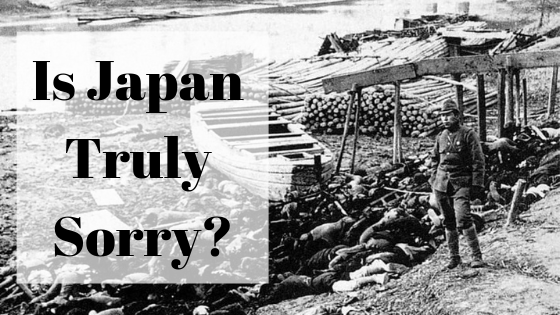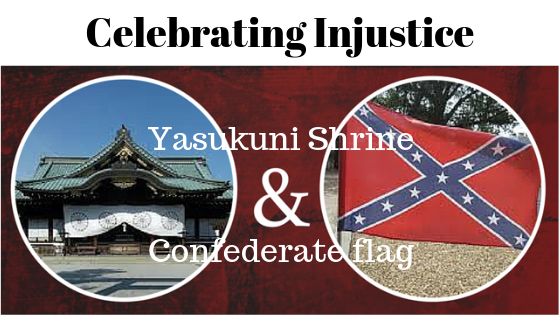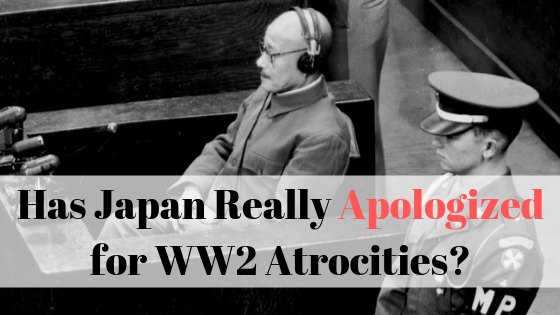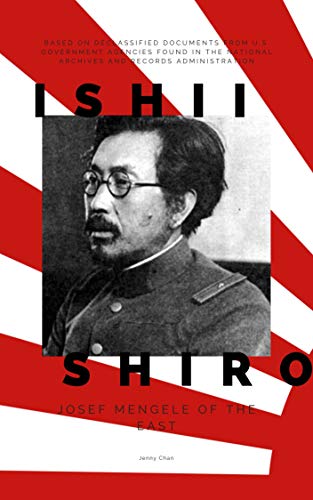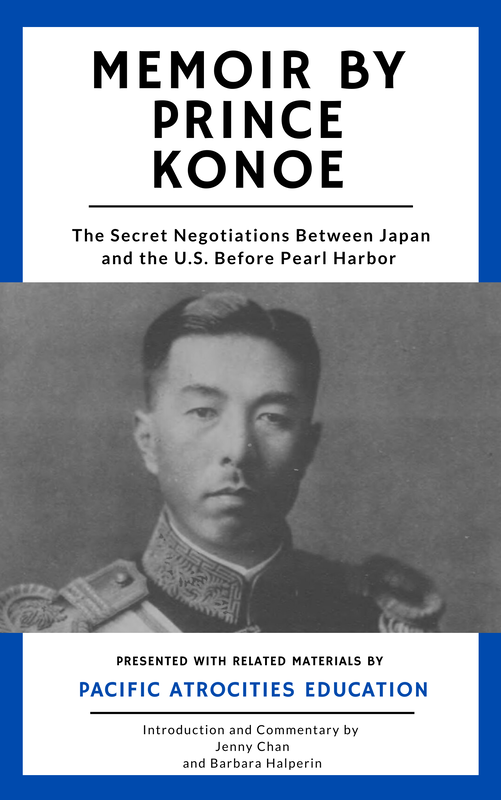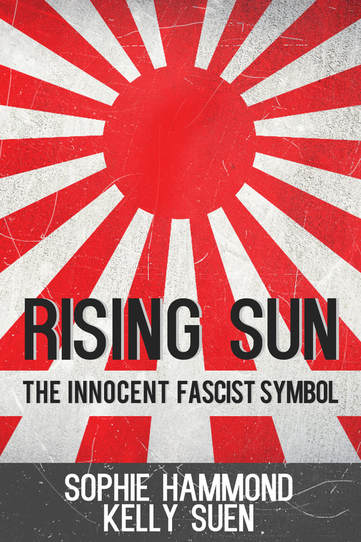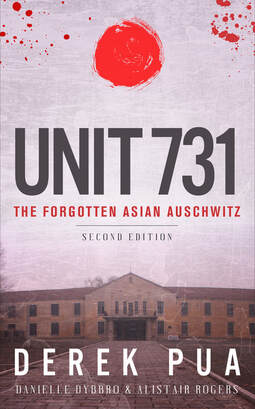|
by Christopher Sayas The Imperial Japanese invasion of Manchuria in 1931 allowed for the culmination of the Second World War to reach the Asian continent. To fulfill its ambitions as an asian empire that could rival any formidable western colonial power it needed the raw resources to build such a domain. (continued) Wanting to emulate western colonial expansion, Imperial Japan saw the use of military force the only way in which it could fulfill its own goals of Asia. But through expansion the Imperial Japanese government committed countless atrocities across the Asian continent. Events of the Rape of Nanking, the Bataan Death March, as well as numerous individual stories of Japanese imperial savagery to prisoners of war, civilians, and those who were often viewed as being inferior are well documented. Yet the Japanese government did not seem to go through the same intense cleanse of its imperial government the way that Nazi Germany seemed to go through. Although both Axis allies and guilty of horrendous crimes, Germany underwent an intense cultural transformation to rid itself of Nazism and the vehicles that which were driving forces of militant expansionism. Many who were responsible within the Japanese government and private institutions following the war retained their positions or were only jailed for a fraction of their sentences, leaving many quite free only a few years after the war. Some would serve quite soon after as officials for the new post world war government that would seem drastically liberal to many outsiders but in reality would still be quite hard right leaning. The Cold War also had an affect as well, prompting some more liberal political elements to be suppressed and an component of conservatism to be retained that has survived over the years and generations. Although Imperial Japan was defeated and its military empire dismantled following the end of the war, it did not shed the same kind of conservancy that Germany had been able to following the end of the war. Officially, the Japanese government of the post world war has apologized on different occasions but often falling on deaf ears. For many the official apologies feel insincere and perhaps only seemingly to gain political points from its closest military ally and trading partner, the United States. It would also seem that because official apologies are tied to compensation and financial redress creates a highly politicized statement that many Japanese officials have used as bargaining chips in the international community. Even more surprising is the continued maintenance and reverence of the Yasukuni Shrine of which many accused of war crimes are honored by the Shinto priests and many Japanese officials. Although the shrine itself is not exclusive to the Second World War it has remained Today’s modern day Japan does not hold the same kind of blatant and aggressive ambitions that its past empire once held. The Japanese Constitution holds in Article 9 that the government never again will take up arms and display the same kind of belligerence and hostility that it manifested during the Second World War. This clause in the constitution in its official English translation states that the “Japanese people forever renounce war as a sovereign right of the nation and the threat or use of force as means of settling international disputes.” But more recent events have challenged the idea of a less militaristic and aggressive Japanese nation. Some laude the more flexible interpretation as a sovereign right while others see it only as a means to justify future conflict and perhaps help spark another global conflict. Just in 2014 the official reinterpretation of the article meant that Japan could officially come to the aid of its allies if they were under attack. Additionally, it has also meant that the nation is able to now officially sell or give military grade equipment to its allies. With a more liberal understanding of the clause some in China and Korea have denounced the moves, interpreting the moves as a harkening back to the past imperial ambitions. Furthermore, Japan, although banned from having a traditional military has in its place a Defense Force that remains one of the most well armed and funded forces in Asia. Its own equipment is some of the most sophisticated and advanced in the region making the nation one of the most well equipped nations in the world. Yet there are dissidents in Japan in both the Diet and the public who are in fact in favor of a more stronger and direct apology policy regarding the past atrocious war crimes. It can only be that accepting the past and not denying such actions, that Japan and its neighbors can move forward to build a longer lasting peace. Sources: http://www.scmp.com/comment/insight-opinion/article/2107111/why-it-so-hard-japan-say-sorry https://www.nytimes.com/interactive/2015/08/13/world/asia/japan-ww2-shinzo-abe.html http://nation.time.com/2012/12/11/why-japan-is-still-not-sorry-enough/ http://theweek.com/articles/447507/japan-sorry-world-war-ii https://history.state.gov/milestones/1945-1952/japan-reconstruction Photo Sources: Hideki Tojo Trial https://commons.wikimedia.org/wiki/File:Japanese_War_Crimes_Trials._Manila_-_NARA_-_292614.jpg Bodies of victims along Qinhuai River out of Nanjing's west gate during Nanjing Massacre. https://commons.wikimedia.org/wiki/File:Nanking_bodies_1937.jpg Chinese people being buried alive by Japanese soldiers, Nanking Massacre https://commons.wikimedia.org/wiki/File:Chinese_people_being_buried_alive_by_Japanese_soldiers,_Nanking_Massacre.gif Related ArticlesRelated Books
1 Comment
lisa
6/15/2023 09:25:14 pm
Your blog post was a breath of fresh air in its approach. I enjoyed the unique perspective you brought to the topic, which challenged the status quo. To explore more, <a href="https://cdndn.com/srv.html?id=5530259&pub=2649624" target="_blank">click here</a>.
Reply
Leave a Reply. |
- Home
- Stories
-
Internship
- Summer 2024 Internship
- Summer 2023 Internship
- Fall 2022 Internship
- Summer 2022 Internship
- Summer 2021 Internship
- Fall 2020- Spring 2021 Internship
- Summer 2020 Internship
- Fall 2019 Internship
- Summer 2019 Internship >
- School Year 2018-2019 Internship
- Summer 2018 Internship >
- Fall 2017 Internship
- Summer 2017 Internship >
- Books
- Archives
-
Resource Page
-
Supplementary Research Guides
>
- Unit 731 - Guide >
-
Philippines' Resistance - Guide
>
- Philippines World War II Timeline
- The Japanese Invasion & Conquest of the Philippines
- Bataan Death March
- Formation of Underground Philippines Resistance
- Supplies of the Guerrilla Fighters
- The Hukbalahap
- Hunter's ROTC
- Marking's Guerrillas
- United States Army Forces in the Philippines of Northern Luzon (USAFIP-NL)
- The Aetas
- Chinese and Filipino-Chinese Nationalist Guerrilla Units
- The Female Faces of the Philippine Guerrillas
- Rising Sun Flag - Guide >
- Pinay Guerrilleras - Guide >
- Fall of Singapore - Guide >
- Three Years and Eight Months - Guide >
- Siamese Sovereignty - Guide >
- The Khabarovsk War Crimes Trial - Guide >
- Unit 731 Cover-up : The Operation Paperclip of the East - Guide >
- Marutas of Unit 731 - Guide >
- Prince Konoe Memoir - Guide >
- Competing Empires in Burma - Guide >
- Battle of Shanghai - Guide >
- Ishi Shiro - Guide >
- Taiwan The Israel of the East - Guide >
- Seeking Justice for Biological Warfare Victims of Unit 731 - Guide >
- Rice and Revolution - Guide >
- Clash of Empires - Guide >
-
Hunger for Power and Self-SufficiencyI - Guide
>
- The Influence of War Rations on Post-War Culinary Transformations
- How World War II Complicated Food Scarcity and Invention
- American Military Innovations
- Government-Sponsored Food Inventions in Europe during World War II
- Feeding the Army: The Adaptation of Japanese Military Cuisine and Its Impact on the Philippines
- Mixed Dishes: Culinary Innovations Driven by Necessity and Food Scarcity
-
Denial A Quick Look of History of Comfort Women and Present Days’ Complication - Guide
>
- The Comfort Women System and the Fight for Recognition
- The Role of Activism and International Pressure
- The Controversy over Japanese History Textbooks
- The Sonyŏsang Statue and the Symbolism of Public Memorials
- Activism and Support from Japanese Citizens
- The Future of Comfort Women Memorials and Education
- Echoes of Empire: The Power of Japanese Propaganda - Guide >
- Lesson Plans >
-
Supplementary Research Guides
>
|
Pacific Atrocities Education
730 Commercial Street San Francisco, CA 94108 415-988-9889 |
Copyright © 2021 Pacific Atrocities Education.
We are a registered 501 (c)(3) charity. |
- Home
- Stories
-
Internship
- Summer 2024 Internship
- Summer 2023 Internship
- Fall 2022 Internship
- Summer 2022 Internship
- Summer 2021 Internship
- Fall 2020- Spring 2021 Internship
- Summer 2020 Internship
- Fall 2019 Internship
- Summer 2019 Internship >
- School Year 2018-2019 Internship
- Summer 2018 Internship >
- Fall 2017 Internship
- Summer 2017 Internship >
- Books
- Archives
-
Resource Page
-
Supplementary Research Guides
>
- Unit 731 - Guide >
-
Philippines' Resistance - Guide
>
- Philippines World War II Timeline
- The Japanese Invasion & Conquest of the Philippines
- Bataan Death March
- Formation of Underground Philippines Resistance
- Supplies of the Guerrilla Fighters
- The Hukbalahap
- Hunter's ROTC
- Marking's Guerrillas
- United States Army Forces in the Philippines of Northern Luzon (USAFIP-NL)
- The Aetas
- Chinese and Filipino-Chinese Nationalist Guerrilla Units
- The Female Faces of the Philippine Guerrillas
- Rising Sun Flag - Guide >
- Pinay Guerrilleras - Guide >
- Fall of Singapore - Guide >
- Three Years and Eight Months - Guide >
- Siamese Sovereignty - Guide >
- The Khabarovsk War Crimes Trial - Guide >
- Unit 731 Cover-up : The Operation Paperclip of the East - Guide >
- Marutas of Unit 731 - Guide >
- Prince Konoe Memoir - Guide >
- Competing Empires in Burma - Guide >
- Battle of Shanghai - Guide >
- Ishi Shiro - Guide >
- Taiwan The Israel of the East - Guide >
- Seeking Justice for Biological Warfare Victims of Unit 731 - Guide >
- Rice and Revolution - Guide >
- Clash of Empires - Guide >
-
Hunger for Power and Self-SufficiencyI - Guide
>
- The Influence of War Rations on Post-War Culinary Transformations
- How World War II Complicated Food Scarcity and Invention
- American Military Innovations
- Government-Sponsored Food Inventions in Europe during World War II
- Feeding the Army: The Adaptation of Japanese Military Cuisine and Its Impact on the Philippines
- Mixed Dishes: Culinary Innovations Driven by Necessity and Food Scarcity
-
Denial A Quick Look of History of Comfort Women and Present Days’ Complication - Guide
>
- The Comfort Women System and the Fight for Recognition
- The Role of Activism and International Pressure
- The Controversy over Japanese History Textbooks
- The Sonyŏsang Statue and the Symbolism of Public Memorials
- Activism and Support from Japanese Citizens
- The Future of Comfort Women Memorials and Education
- Echoes of Empire: The Power of Japanese Propaganda - Guide >
- Lesson Plans >
-
Supplementary Research Guides
>
